The best TV performances of 2021
This year's best TV performances can be found in dramas like Succession and promising new comedies like Reservation Dogs
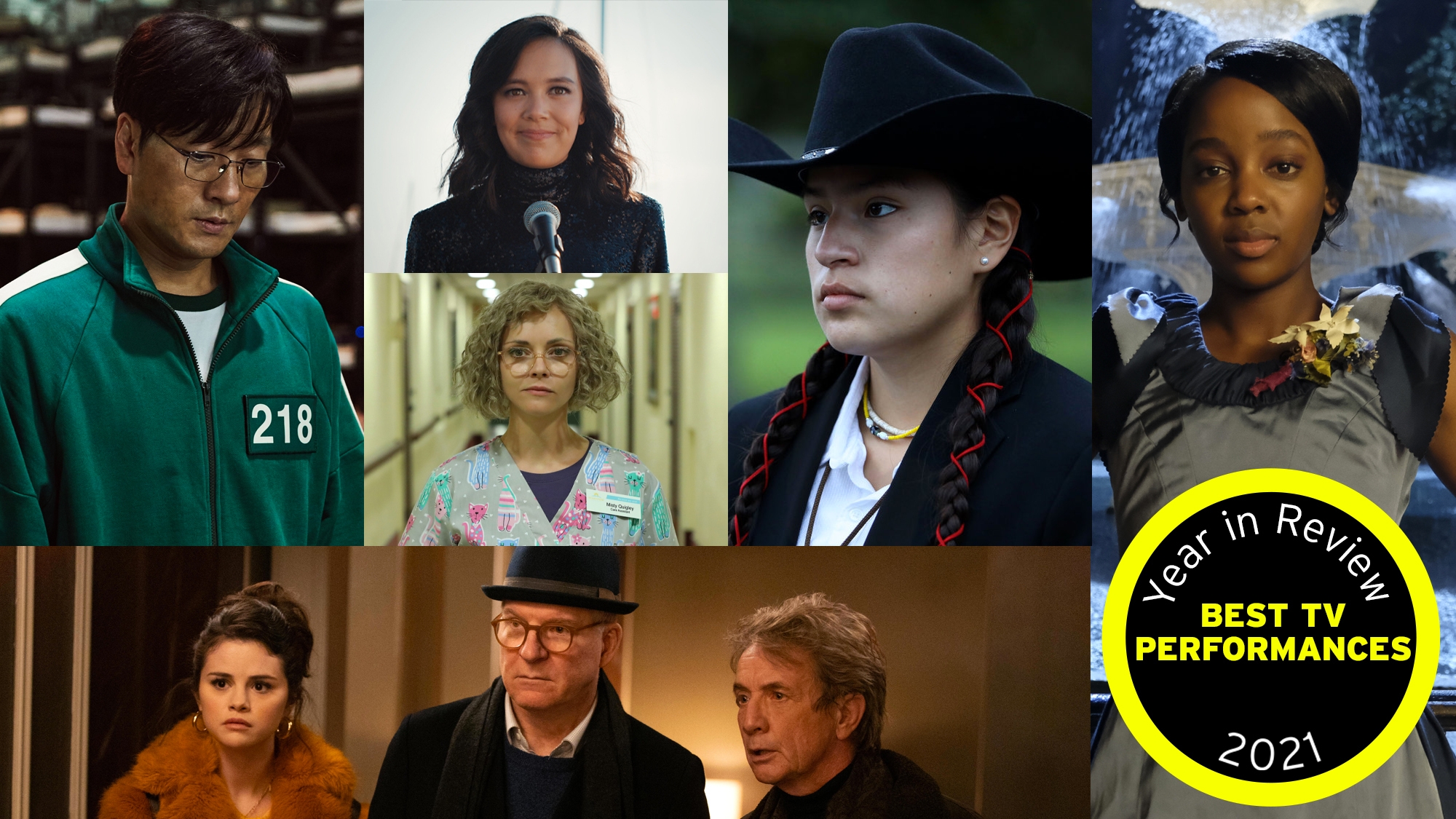
As we enter the final days of 2021, we can all breathe a big sigh of relief, and let go of the long-running debate over whether TV is back in full swing. Considering all of this year’s debuts and returning series, we’ve had as many compelling reasons to stay inside as frightening ones. Great adaptations, poignant new comedies, and outlandish sketch shows beckoned us throughout the year, led by an array of actors from the big and small screens (and a few frequent fliers in between).
Some performers gave new life to a role they’ve embodied for years, while others found the role of a lifetime. One of Christopher Guest’s favorite collaborators clawed her way to the top of a cast of standouts, as two comedy icons welcomed a third into their fold/Manhattan apartment building. A magnetic young actor held Barry Jenkins’ gaze and our own. And the star of an HBO Max comedy and an HBO limited series made us consider giving her two spots on our list.
In putting together the best TV performances of the year, The A.V. Club always looks to highlight ensembles and individuals. But when the nomination process began, we once again found ourselves singling out powerful leads, stalwarts in supporting roles, and those who are climbing through the ranks. So the ensembles will (mostly) have to wait until next year.

As we enter the final days of 2021, we can all breathe a big sigh of relief, and let go of the long-running debate over whether TV is back in full swing. Considering all of this year’s debuts and returning series, we’ve had as many compelling reasons to stay inside as frightening ones. Great adaptations, poignant new comedies, and outlandish sketch shows beckoned us throughout the year, led by an array of actors from the big and small screens (and a few frequent fliers in between). Some performers gave new life to a role they’ve embodied for years, while others found the role of a lifetime. One of Christopher Guest’s favorite collaborators clawed her way to the top of a cast of standouts, as two comedy icons welcomed a third into their fold/Manhattan apartment building. A magnetic young actor held Barry Jenkins’ gaze and our own. And the star of an HBO Max comedy and an HBO limited series made us consider giving her two spots on our list. In putting together the best TV performances of the year, The A.V. Club always looks to highlight ensembles and individuals. But when the nomination process began, we once again found ourselves singling out powerful leads, stalwarts in supporting roles, and those who are climbing through the ranks. So the ensembles will (mostly) have to wait until next year.
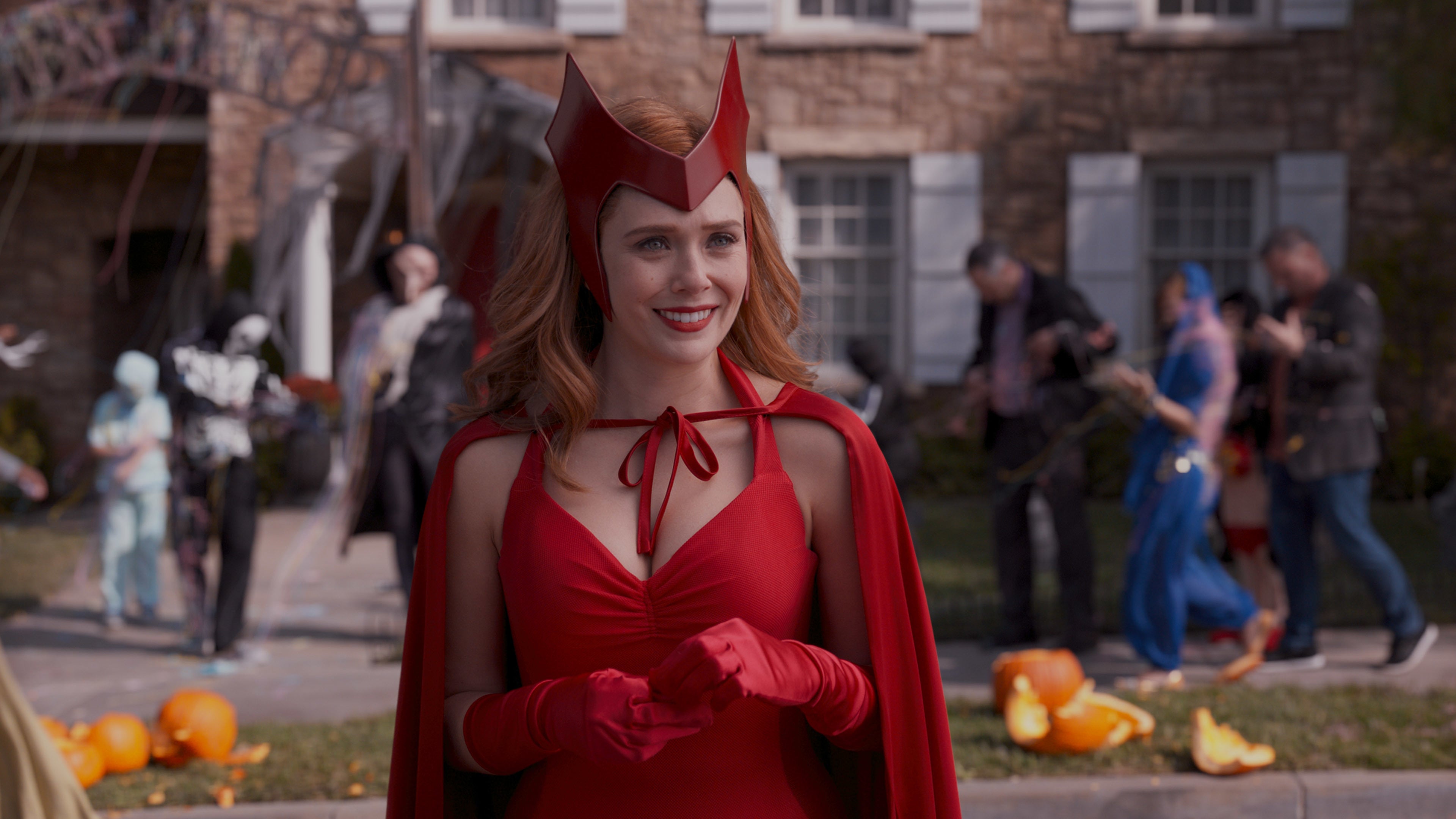
Disney+’s audacious WandaVision is simultaneously a Marvel superhero adventure, a David Lynch-inspired mind bender, and a haunting exploration of grief. Series star Elizabeth Olsen’s spellbinding performance unites these disparate elements into a compelling whole. Whether she’s playing a 1950s Donna Reed, 1960s Mary Tyler Moore, or a 21st-century Julie Bowen, Olsen is utterly convincing as a TV mom through the ages, never slipping into a too-easy parody. She conveys astonishing emotional depth during even the most absurd sitcom scenarios, and she’s consistently hilarious. The trauma she’s experienced since her introduction in is present just beneath the surface, because even in a fantasy world of her own creation, she can’t lie to herself. In nine episodes, Olsen catapults the Scarlet Witch from supporting character to major player in the MCU’s Phase Four. [Stephen Robinson]Read This:
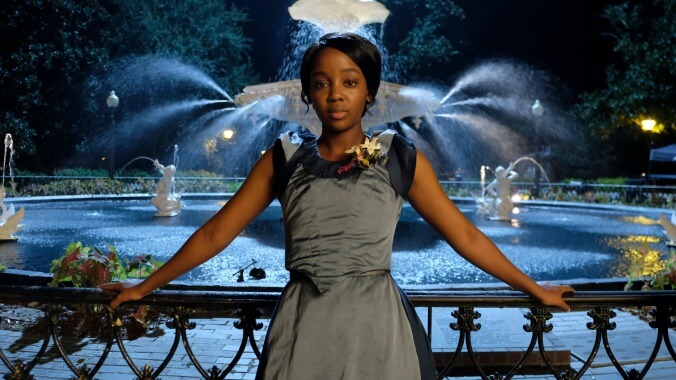
The role of Cora in The Underground Railroad is an unusual showcase for an actor—her perilous voyage through the antebellum South and the only slightly less bigoted North would seem to offer a veritable gamut of emotions to render onscreen. But what makes Thuso Mbedu’s lead performance so powerful is how often those feelings are kept just beneath the surface. For much of the story, survival is paramount, so Mbedu plays Cora as increasingly guarded, almost stoic, while still emanating the sense of a flower eager to bloom. Mbedu and series director/writer Barry Jenkins (who adapted Colson Whitehead’s Pulitzer-winning novel) never forget that, despite her terrifying circumstances, Cora is a young woman. She learns ever so gradually to trust, to love—a journey no doubt hastened by William Jackson Harper’s gentle wooing as Royal, but much of which plays out via infinitesimal changes in expression. “Stunning” is all too frequently applied to performances, but Mbedu’s work here really does leave the viewer in a state of quiet contemplation. [Danette Chavez] on learning to embody the struggle of her character.

There’s no end to the level of absurdity that the actors on I Think You Should Leave commit to with each sketch, with the viewer never knowing exactly what’s going to happen as the minutes roll by and the tension amps up. Of all of the brilliant comedians that grace the show from time to time, Patti Harrison may be the most unforgettable. With everyone in the season-two sketch “” playing it straight, Harrison’s brand of weirdness really makes for a perfect critique of the nouveau riche. There’s a marvelous self-awareness to it that is often missing from reality TV parody and that’s precisely why it works. But maybe her greatest work of all on the show comes in “Driver’s Ed.” As she yells and weeps over the phone about how dirty her tables are, you can’t help but stare in a mixture of amazement, confusion, horror, and, well, sympathy. It’s not just in the way that the performance, like so many others by Harrison, goes from seemingly natural to extraordinarily unhinged, but how she never loses sight of the very human emotions at its core. [Juan Barquin]
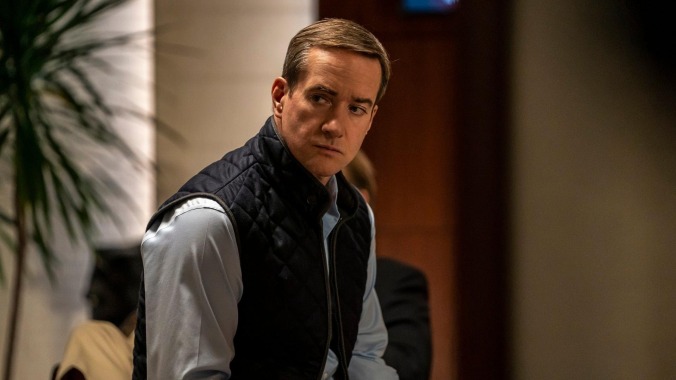
Yes, Succession parades the wide variety of horrible Roy family personality traits every week, but for our tainted money, the standout is their underrated in-law. Matthew Macfadyen’s Tom almost functions as an audience stand-in, helpless against the mounds of vitriol dumped on him each week from his father-in-law, his brothers-in-law, and even his own wife (sample sweet talk: “I may not love you, but I do love you”). Grappling for any sense of control, Tom frequently goes off and bullies poor cousin Greg (Nicholas Braun), the only family member ranked even below himself. This season, Macfadyen‘s performance reached new levels as Tom gamely offered himself up as a Waystar prison sacrifice, only to discover, to his horror, that incarceration was actually an option. Wordlessly or with only a few sad syllables, Macfadyen’s never failed to convey Tom’s absolute terror as he considered his gloomy fate, researching his imprisonment options online. There has never been a more zealous Succession moment than bottled-up Tom celebrating his figurative release from prison by trashing Greg’s office—a scene that should just win Macfadyen the Outstanding Supporting Actor Emmy outright. [Gwen Ihnat]Read This: .
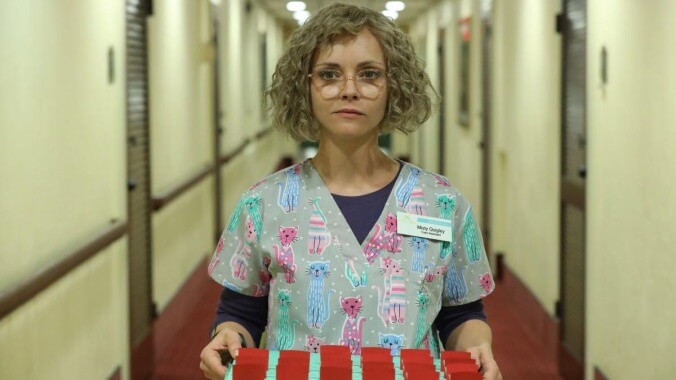
is so stacked it’s almost impossible to highlight just one performance, especially with a fantastic group of young actors playing the teen versions of the characters. But as the show goes on, settling into both its 1990s Lord Of The Flies timeline and its 2021 timeline following the traumatized, cutthroat survivors, one character consistently asserts herself: Christina Ricci’s unhinged, terrifying, and very funny adult version of Yellowjackets equipment manager Misty Quigley. It’s not much of a spoiler to note that Misty, a girl introduced watching a rat drown in her pool, is the closest thing Yellowjackets has to a straight-up villain. But Ricci’s version of the character, adrift without the sense of purpose she got from being stranded in the wilderness, is relentlessly compelling. It’s impossible to look away from her insecurity, her childishness, and, of course, her extreme comfort with hurting and manipulating the people around her. We can’t wait to see what she does next. [Eric Thurm]
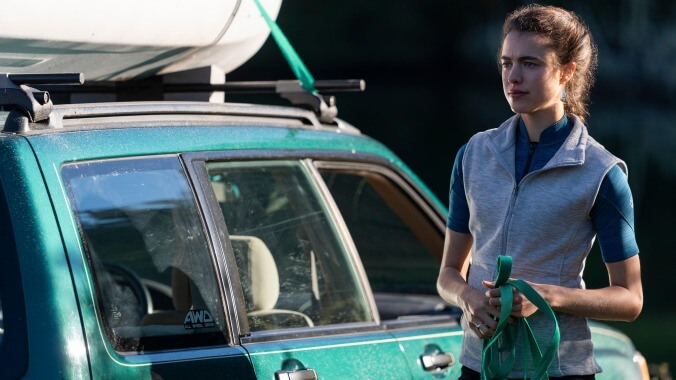
Margaret Qualley pours her soul into every moment of her role as Alex Russell, a single mother and survivor of domestic abuse striving to make ends meet for her 3-year-old daughter by working as a maid. The limited series’ intense subject matter is often wrenching, elevated by Qualley’s tender but unflinching commitment to the role. Her evocative expressions, naturalistic delivery, and obvious chemistry with the cast (including her real-life mother Andie MacDowell) work in concert here. Qualley brings both melancholy and levity to the material, inspired by Stephanie Land’s memoir. The actor handles the show’s tear-jerking display of poverty just as much as deftly she does the lovely victory dances during Alex’s sporadic wins. At its core, Maid is a story about hope, and Qualley is the wide-eyed, soulful avatar for that optimism. [Saloni Gajjar]
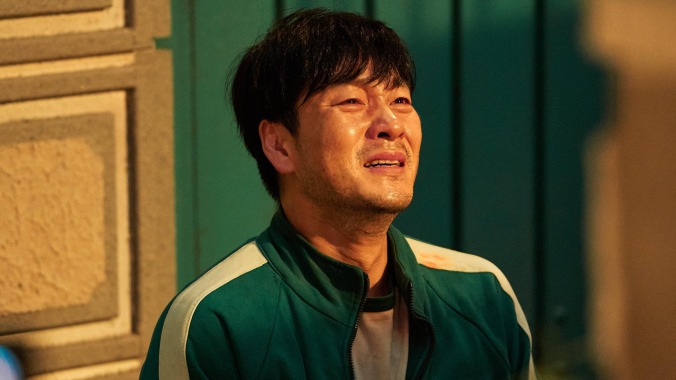
In truth, it’s hard to pick a favorite among Squid Game’s all-around stellar ensemble, and any of the cast would be well-deserving of a spot on this list. But as refined, college-educated businessman Cho Sang-woo (a.k.a. Player 218), Park Hae-soo is faced with a particularly tricky challenge: He has to sell Sang-woo’s shift from honorable nebbish to cutthroat competitor while still keeping his character cohesive. And it’s a tribute to Park’s phenomenally subtle acting abilities that Sang-woo’s eventual heel-turn is both surprising and inevitable. Though the hints are there from the beginning (particularly during that dalgona episode), Park handles them so nimbly that Sang-woo’s transformation almost plays like a magic trick. It’s the sort of thoughtful character work that only a great actor can make look easy. And along with the rest of his castmates, Park provides a crucial emotional center that makes Squid Game’s over-the-top world and larger-than-life social commentary work. [Caroline Siede]
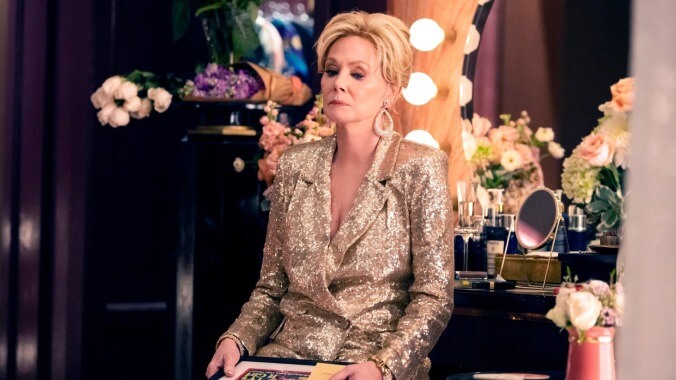
The year of the Jeanaissance all but guaranteed Jean Smart’s inclusion on this list; the only real question was whether we’d commend her supporting role in , or single out her barnstorming performance in Hacks. We didn’t have to resort to arm-wrestling or coin-tossing, because Deborah Vance is a role whose potency cannot be denied. Smart commands every scene in Hacks, even when her character would appear to be at a disadvantage; she’s irrepressible onstage, though her routine has become dated enough to require some retooling by a Gen Z upstart (as Ava Daniels). But Smart is just as captivating in the show’s quieter moments, in which Deborah reflects on her hard-won success and innate talent. There’s also a sense of generosity in Deborah and Ava’s scenes together that would be obvious even if we hadn’t heard of how Smart took Einbinder under her wing. Ava challenged her onscreen mentor to lift as she climbs up, but Smart needed no such urging. [Danette Chavez]
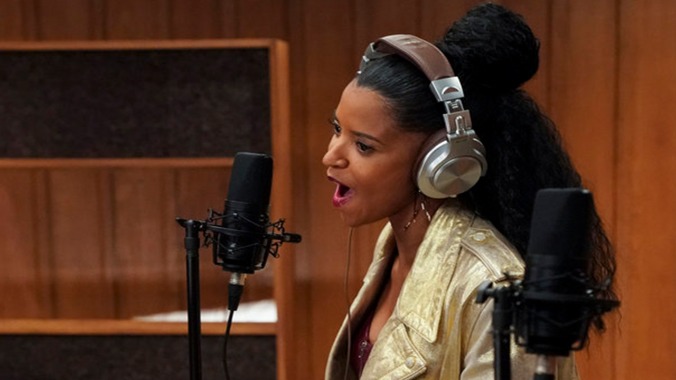
It’s hard to single out just one member of the Girls5eva ensemble, but in the first season (which won’t be the last, thank goodness), ’s delightfully loopy performance was perhaps the most unexpected. For most of her career, the Tony-winning actress and singer has been known for serious roles in the likes of and . But in Girls5eva, her Wickie Roy is a wonderful comic creation: a stubbornly proud fading star who keeps defaulting to diva mode, even when she’s bring pranked by Gen Z TikTok influencers or being forced by circumstance to sell her HPV cells to science (what she refers to, in a meta moment, as “a Henrietta Lacks situation”). Wickie is supposed to be “the fierce one” from this Spice Girls-like ’90s girl group; but her personal life and career is a mess, and it’s clear that she uses her public persona as a shield when she’s offstage. Goldsberry plays her as hilariously downtrodden yet admirably dignified. She’s a person, not a cartoon. [Noel Murray]
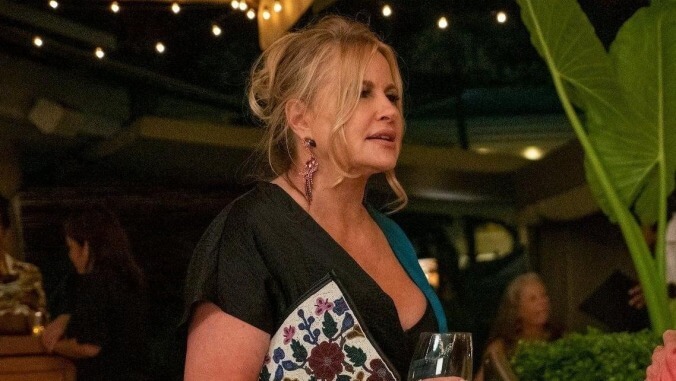
Mike White’s satirical HBO dramedy is replete with masterful performances, but from the moment she first pronounces her character’s last name (it’s “Tanya McQuiod,” you see), steals the show. () Coolidge is well known for her more boisterous comedic roles, but here, she shows off a somber and dramatic side, without losing her humorous essence. She captivates as the troubled Tanya, who dealt peculiarly with her mother’s demise and clung to resort employee Belinda () for comfort. The actor brings Tanya’s idiosyncrasies and privilege to life with an uncomfortably stiff smile and surprising amenability, making bold choices that serve her character’s arc and the broader story. [Saloni Gajjar]
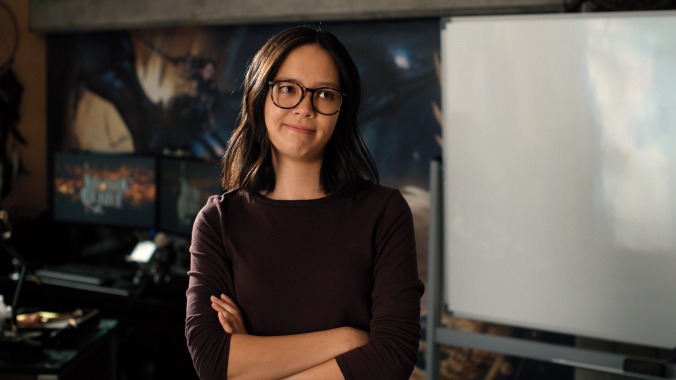
It says something about Charlotte Nicdao’s work in Mythic Quest that so much about Poppy is perfectly crafted to generate audience sympathy, and yet the vast majority of the time, you want to throw up your hands in disgust at her actions. She’s a natural foil to Rob McElhenney’s vain Ian, and anyone watching the show is keenly aware of the gender and racial disparities in the gaming world that make her so unusual as a figure in power. Nicdao’s performance is a constant balancing act between proving that Poppy deserves to be where she is and simultaneously is not the person anyone would want in charge. And because this is a comedy, she has to absolutely stretch the limits of your sympathy for her while still being funny. In the hands of a different performer, Poppy’d be a bundle of mannerisms and oddities, but in Nicdao’s deeply capable hands, she’s just a talented person masking deep insecurities with troubling behavior. In other words, part of what makes her so maddening to watch is that inconvenient pang of sympathy, knowing how hard it is for all of us to overcome our own foibles, even when we get what we want. [Lisa Weidenfeld]
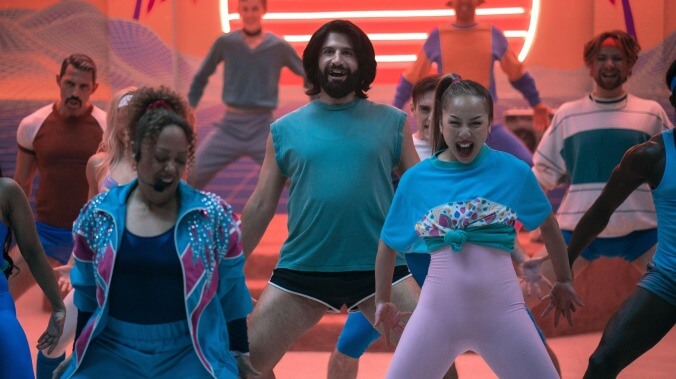
Making a lasting impression as a guest actor is more than a notion, especially on a show like What We Do In The Shadows, which established splashy cameos as part of its inhuman DNA early on. And yet the splashiest cameo of Shadows’ third season came from an actor who has spent the bulk of her career in the shadows. While is an iconic voice performer, she’s barely appeared on camera since her five-season run on ended in 1993—though you’d never know it to see her looking like a walking billboard for hydration and clean living. All the better to play Jan, the charismatic leader of a vampiric wellness cult, who convinces an ennui-stricken Nandor (Kayvan Novak) he can reclaim his humanity with a regimen of high-impact aerobics and Barenaked Ladies sing-alongs. “” plays like Nandor’s shot at a Jackie Daytona-style reinvention. But the episode belongs to Summer, who infuses Jan with enough libidinous joie de vivre to convincingly snooker Nandor, who’s been around long enough to have seen it all. The ferocious performance came about after Summer, a Shadows super-fan, lobbied co-creator Jemaine Clement for a role until he gave her an audition. In Hollywood, which is just another cult of delusional vampires, a little peer pressure goes a long way. [Joshua Alston]Read (and Watch) This:
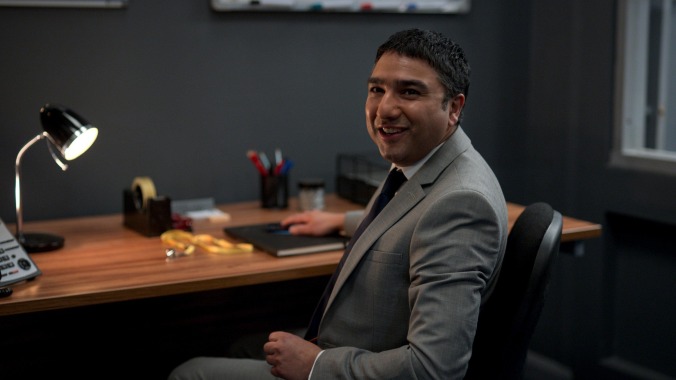
, but one thing is for certain: Audiences came out of the show hating Nate’s guts. Nick Mohammed swiftly turned his mild-mannered, affable character into a pretty loathsome fella over the course of season two. If you can’t stand Nate the Great anymore, it’s because the actor was incredibly convincing. He made it easy to believe that Nate possesses a Joffrey-esque villain inside him. Mohammed’s controlled lashing out in solo scenes—especially spitting at his image in the mirror—fostered unease. Once the show digs into how Nate’s father contributes to his perceived lack of recognition from Ted, it allows Mohammed to begin the unraveling, whether it’s with harsh throwaway comments or straight-up kissing Keeley (Juno Temple) to feel like a powerful man. Mohammed bottles up Nate’s resentment until the finale’s pivotal face-off with Ted (Jason Sudeikis). The actor evokes sympathy as he brings a certain vulnerability to his abhorrence. While that doesn’t excuse Nate’s actions, it certainly establishes Mohammed as the Ted Lasso MVP of the year. [Saloni Gajjar]Read This:
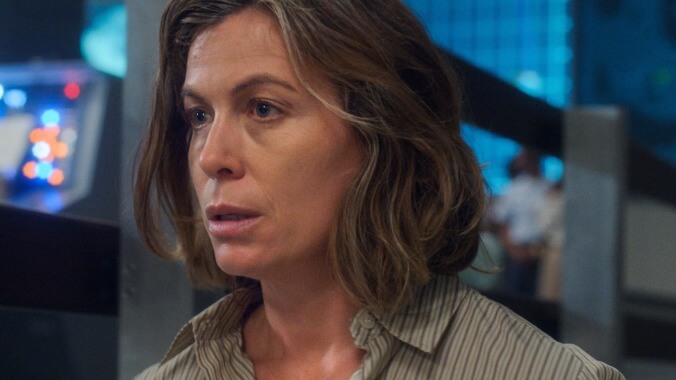
amplified the thrilling tension of an alt-history cold war playing out on a colonized moon, but one of its strengths is understanding those who return to Earth are often wracked with dramas of their own. Sonya Walger’s Molly Cobb—based on real-life near-astronaut Jerrie Cobb—spent the first season pioneering space flight for American women, and the second season begins with her making a split-second decision to risk her own life to save a colleague’s. But when she arrives back at NASA, she learns the resulting radiation exposure will over time render her blind, and she’ll never experience space again. After recurring in the first season as part of a stacked ensemble, Walger—in her finest TV work since —settles into one of the show’s many strong storylines about the mental and physical aftermaths of returning from space, shining as Molly faces the reality that what she spent her whole life dreaming of is gone and confronts what this means about her identity as a now former astronaut. [Myles McNutt]
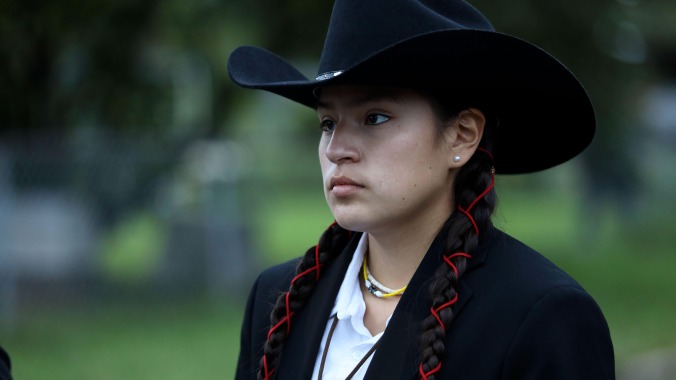
Paulina Jewel Alexis’ turn as the wise-cracking, meat-pie-slinging Willie Jack is the revelation of . Burdened by hurt, unnerved by change, chin held high, Willie Jack navigates those agonizing teenage growing pains alongside her fellow Rez Dogs, getting into minor scrapes and discovering a few hard truths about contented life in the quiet fictional town of Okern, Oklahoma, along the way. The series begins with Willie peppering this FX on Hulu production with a few expertly-placed fffucks and the odd kernel of wisdom, but its sixth episode (“Hunting”) placed Alexis’ formidable cool on a pedestal. Nestled in a silent corner of a forest alongside her father, Leon (an astounding performance from Jon Proudstar), Willie Jack comes to an epiphany concerning her grief over the death of her cousin Daniel. Haunted by ghosts and her war paint absolutely jacked-up by tears, Willie Jack begins to grasp the bigger, stranger world around us. Paulina Jewel Alexis is astounding in this episode as she is in the finale; a low-key performance that is no less profound. [Jarrod Jones]
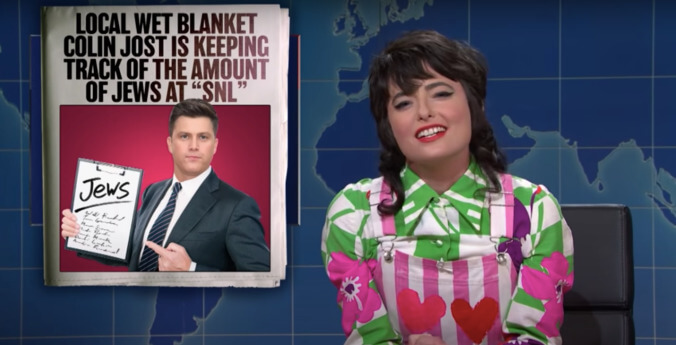
Saturday Night Live started out with just seven cast members—now it has about three times that number, making it much more difficult for newbies to stand out. This season, Chicagoan Sarah Sherman appears determined not to get lost in the shuffle, and the show is all the better for it. She easily fits into supporting characters as varied as a doctor promoting a disgusting mail-in testing service, a kid dressed up as a ladybug for a school assembly, and a Costco intern trying to push pop sensations Glitter Revolution for a marketing campaign. But Sherman’s “Weekend Update” debut is one of the high point of season 47 so far. She gleefully roasts Colin Jost via a variety of seemingly on-the-spot graphics presenting him as everything from “local sicko” to “gorgeous fascist,” immediately winning over the crowd. That three-and-a-half-minute bit proves that while Sherman is a gifted, versatile comedic performer, there is no persona that can compete with her charmingly oddball self (self-described as if “Chuckie went to Sarah Lawrence”). We haven’t been this excited about an appearance on the “WU” desk since Stefon ran off with Seth. [Gwen Ihnat]
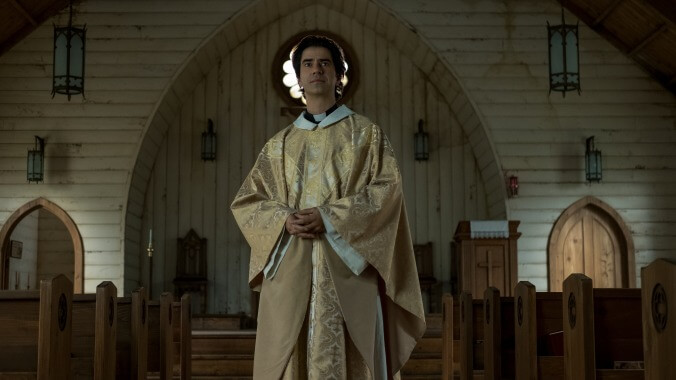
It doesn’t take long to realize that the newest resident of Crockett Island may not be exactly what he seems. Everyone on Midnight Mass, the latest horror series from genre maestro Mike Flanagan, is dealing with darkness or anxiety in some form. And—as anyone who’s watched it can attest—that often takes the form of lengthy monologues. So, so many monologues. But when they’re delivered by Hamish Linklater’s mysterious priest, Father Paul Hill, it’s as though the world’s dropped away. Linklater is magnetic, imbuing his world-weary servant of God with a calming, almost reserved presence that masks a secret zeal. To see that zeal occasionally bubble to the service during his sermons is something to behold; what is often the most tiresome aspect of a show routinely set during a church service (the grandiloquent, hectoring speeches from the pulpit) transformed, in Linklater’s hands, into one of the best parts of the series. It may have been an ensemble piece, but Linklater’s Father Paul stole the show—and more than a few pints of blood. [Alex McLevy]
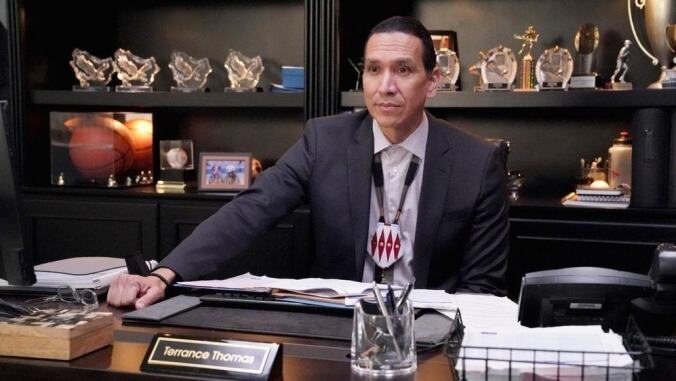
Created by Sierra Teller Ornelas, Mike Schur, and cast member Ed Helms, Peacock’s groundbreaking comedy is primarily led by Native Americans on and offscreen. While newcomer makes a formidable debut, the show’s true power player is Michael Greyeyes. The actor’s career is full of impressive dramatic roles, including 2021’s Wild Indian, but he simply crackles with comedic charm as suave casino owner Terry Thomas. Greyeyes’ performance is reminiscent of that of Steve Carell on The Office or Andre Braugher in Brooklyn Nine-Nine; he easily switches between laugh-out-loud moments to serious, even fatherly compassion, delivering one of the best performances of the year. The actor is a joy to watch in a show that remains unabashedly vibrant, even as it tackles various cultural issues faced by the Indigenous community.
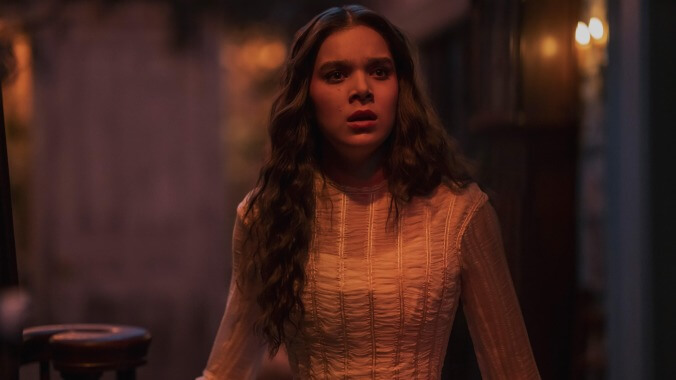
Though its flights of fancy soared higher than ever in season three, Alena Smith’s Dickinson remained rooted in the realities of Emily Dickinson’s life—her creative struggles, the conflicts driving her family and country apart. The series has always careened between comedy and drama, but its hairpin turns in tone and style would have been far less successful without Hailee Steinfeld in the lead role. Steinfeld’s had to embody Smith’s vision of the poet as a young woman as well as hint at the figure that would one day loom large over American literature, bounding from the present to the past, and in between genres. The actor’s likely to garner more attention for her role as Kate Bishop in Disney+’s , because such is the Marvel industrial complex. But Steinfeld’s work on Dickinson is much more urgent and poignant—it’s the crux of a three-season-long exploration of art and family, of uncovering your passion and purpose. We’ll take comfort from the fact that, unlike her alter ego, Steinfeld is already being appreciated in her time.
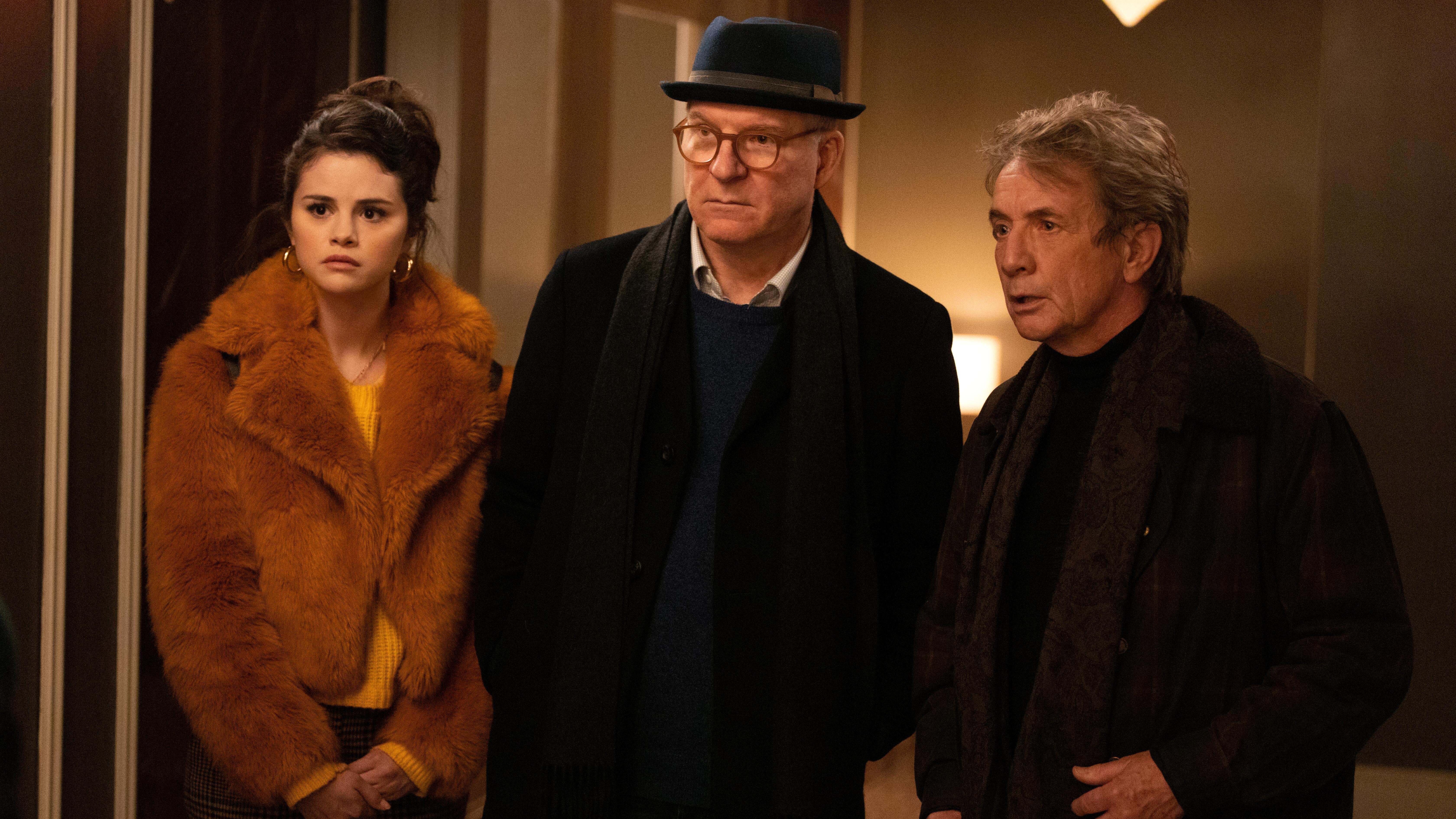
We were tempted to single out Selena Gomez for holding her own against two comedic talents of Steve Martin’s and Martin Short’s stature. But the Only Murders In The Building podcasters stayed true to each other through thick, thin, and other textures of hummus, so we wouldn’t dream of separating them here. Besides, Mabel’s (Gomez) dryness is offset by Oliver’s (Short) hilarious forthrightness, which itself is tempered by Charles’ (Martin) quiet desperation. The core trio’s performances are as complementary as can be, even as they’re all given ample opportunity to shine on their own: Short’s way with a quip and a putdown was unmatched, Gomez lent the story an extra dose of poignancy, and Martin showed off his versatility once more. By the end of season one, the cast chemistry was even more compelling than the mystery everyone was trying to solve. [Danette Chavez]
GET A.V.CLUB RIGHT IN YOUR INBOX
Pop culture obsessives writing for the pop culture obsessed.